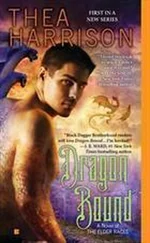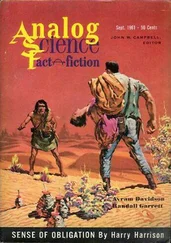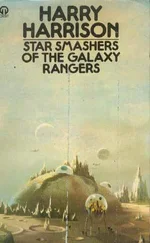M Harrison - Viriconium
Здесь есть возможность читать онлайн «M Harrison - Viriconium» весь текст электронной книги совершенно бесплатно (целиком полную версию без сокращений). В некоторых случаях можно слушать аудио, скачать через торрент в формате fb2 и присутствует краткое содержание. Жанр: Фэнтези, на английском языке. Описание произведения, (предисловие) а так же отзывы посетителей доступны на портале библиотеки ЛибКат.
- Название:Viriconium
- Автор:
- Жанр:
- Год:неизвестен
- ISBN:нет данных
- Рейтинг книги:3 / 5. Голосов: 1
-
Избранное:Добавить в избранное
- Отзывы:
-
Ваша оценка:
- 60
- 1
- 2
- 3
- 4
- 5
Viriconium: краткое содержание, описание и аннотация
Предлагаем к чтению аннотацию, описание, краткое содержание или предисловие (зависит от того, что написал сам автор книги «Viriconium»). Если вы не нашли необходимую информацию о книге — напишите в комментариях, мы постараемся отыскать её.
Viriconium — читать онлайн бесплатно полную книгу (весь текст) целиком
Ниже представлен текст книги, разбитый по страницам. Система сохранения места последней прочитанной страницы, позволяет с удобством читать онлайн бесплатно книгу «Viriconium», без необходимости каждый раз заново искать на чём Вы остановились. Поставьте закладку, и сможете в любой момент перейти на страницу, на которой закончили чтение.
Интервал:
Закладка:
“I suppose I’ll be sent to the arena now,” he said.
“I’m sorry.”
He shrugged.
“The thing seems to be stuck to my hand,” he told her. “Do you know anything about it? How to get it off?”
But it was his hand, he found, that was at fault. It had swollen into a thick clubbed mass the colour of overcooked mutton, in which the hilt of the weapon was now embedded. He could just see part of it protruding. If he shook his arm, waves of numbness came up it; it did no good anyway, he couldn’t let go.
“I hated my rooms,” he said. “But I wish I was back in them now.”
“I was betrayed, too, you know,” she said.
Later, while two women supported her head, Mammy Vooley peered into Crome’s face as if trying to remember where she had seen him before. She was trembling, he noticed, with fear or rage. Her eye was filmed and watery, and a smell of stale food came up out of her lap. He expected her to say something to him but she only looked, and after a short time signed to the women to push her away. “I forgive all my subjects,” she announced to the crowd. “Even this one.” As an afterthought she added, “Good news! Henceforth this city will be called Vira Co, ‘the City in the Waste.’ ” Then she had the choir brought forward. As he was led away Crome heard it strike up “Ou lou lou,” that ancient song:
Ou lou lou lou
Ou lou lou
Ou lou lou lou
Ou lou lou
Ou lou lou lou
Lou Lou lou lou
Ou lou lou lou
Lou
Lou
Lou
Soon the crowd was singing too.
STRANGE GREAT SINS
“This mite’s sins are nothing to some I’ve had to swallow,” boasted the sin-eater. He was a dark, energetic man of middle height and years, always nodding his head, rubbing his hands, or shifting his weight from one foot to the other, anxious to put the family at their ease. “They’ll taste of vanilla and honey compared to some.”
No one answered him, and he seemed to accept this readily enoughhe had, after all, been privy in his life to a great deal of grief. He looked out of the window. The tide was ebbing, and the air was full of fog which had blown in from the sea. All along Henrietta Street, out of courtesy to the bereaved family, the doors and windows were open, the mirrors covered and the fires extinguished. Frost and fog, and the smell of the distant shore: not much to occupy him. The sin-eater breathed into his cupped hands, coughed suddenly, yawned.
“I like a wind that blows off the land myself,” he said.
He went and looked down at the little girl. They had laid her out two hours ago, on a bed with a spotless blue and white cover, and placed on her narrow chest a dish of salt. Gently he tapped with an outstretched finger the rim of this dish, tilting his head to hear the clear small ringing noise which was produced.
“I’ve been in places where they make linen garlands,” he said, “and decorate them with white paper roses. Then they hang white gloves from them, one glove for each year of the kiddy’s age, and keep them in the church until they fall to pieces.” He nodded his head. “That’s how I think of children’s sins,” he said. “White gloves hanging in a church.”
Imagining instead perhaps the narrow cemetery behind the dunes, entered through its curious gateway formed of two huge curved whalebones, imagining perhaps the sea holly, the gulls, and the blowing sand which covers everything, the girl’s mother began to cry. The rest of the family stared helplessly at her. There was another, idiot, daughter who banged her hands on the table and threw a knife into the empty grate. The father, an oldish man who delivered mackerel in a cart along the Fish Road to Eame, Child’s Ercall, and sometimes as far as Sour Bridge, said dully: “She were running about yesterday as happy as you please. She were always running, happy as you please.” He had repeated this every half hour or so since the sin-eater’s arrival, shaking his head as if in his simple pleasure at her happiness he had somehow missed a vital clue which would have enabled him to prevent her death (or at least comprehend it). His wife touched his sleeve, rubbing her eyes and trying to smile.
It was a long vigil, as they always are. Towards morning the sin-eater heard a sound of muffled revelry in the street outside: stifled laughter, the rattle of a tambourine quickly stilled, the scrape of clogs on the damp cobbles. When he looked out he could see several dim figures moving backwards and forwards in the sea fog. He blinked. He narrowed his eyes and cleaned the windowpane with the flat of his hand. Behind him he heard the child’s father get to his feet with a deep sigh. Turning back into the room he said, “They’ve brought the horse over from Shifnal, I think. Unless you’ve got one in the village.”
The old man stared at him, at first without seeming to understand, then with growing anger, while outside they began to sing:
Mari Lwyd
Horse of frost amp; fire
Horse which is not a horse
Look kindly on our celebration.
The pallid skull of the Mari could now be seen, bobbing up and down on its pole, clacking its lower jaw energetically as the wind opened the fog up into streaming ribbons and tatters, then closed it again, white and seamless like a sheet.
“Let us in and give us some beer,” called a muffled but derisive voice. The idiot daughter gave a smile of delight and stared round the room as if she had heard a cupboard or a table speak; she tilted her head and whispered. There was a clatter of hooves or clogs, or perhaps it was simply the clapping of hands. The Mari’s followers were dressed in rags. They danced in the fog and frost, their breath itself a fog. The masks they wore were meant to represent the long strange lugubrious head of the wasteland locust, that enormous insect which lives in the blowing sand and clinging mud of the Great Brown Desert.
“I’ll give you more than beer!” shouted the old man, his face congested with his powerful frustration and grief. “I’ll give you something you won’t like!” He pulled the sleeves of his shirt up above his elbows, and before his wife could stop him he had rushed out among the Mari-boys, kicking and punching. They evaded him with deft hops and skips, and ran away laughing into the mist; the idiot daughter murmured and bit her nails; the door banged emptily back and forth in the wind. The old man had to come back into the house, shamefaced and defeated.
“Leave them be,” said his wife. “They’re not worth it, that lot from up at Shifnal.”
Distantly the voices still sang,
Mari Lwyd
Falls between the day and the hour
Horse which is not a horse
Look kindly on our feast.
The sin-eater made himself comfortable by the window again. He scratched his head. Something in the foggy street had stirred his memory. “The horse which is not a horse,” he whispered dreamily.
He smiled.
“Oh, no,” he said to the old man and his wife, “your little girl’s sins will be like the coloured butterflies-compared to some I’ve tasted.” And then again: “The horse which is not a horse. I never hear those words without a shudder. Have you ever been to Viriconium? Packed your belongings aboard some barge at the ruined wharfs of the Yser Canal? Watched two clouds close a slot of blue in the winter sky, so that you felt as if something had been taken from you forever?”
Seeing that he had puzzled them, he laughed.
“I suppose not. Still… The horse which is not a horse…”
To recall the momentous events of your life (he went on) is to pull up nettles with the flowers. When I think of my uncle Prinsep I remember my mother first, and only then his watery blue eyes. When I think of him I can see the high brick walls of the lunatic asylum at Wergs, and hear the echoing shouts from the abandoned almshouses round the Aqualate Pond.
Читать дальшеИнтервал:
Закладка:
Похожие книги на «Viriconium»
Представляем Вашему вниманию похожие книги на «Viriconium» списком для выбора. Мы отобрали схожую по названию и смыслу литературу в надежде предоставить читателям больше вариантов отыскать новые, интересные, ещё непрочитанные произведения.
Обсуждение, отзывы о книге «Viriconium» и просто собственные мнения читателей. Оставьте ваши комментарии, напишите, что Вы думаете о произведении, его смысле или главных героях. Укажите что конкретно понравилось, а что нет, и почему Вы так считаете.











